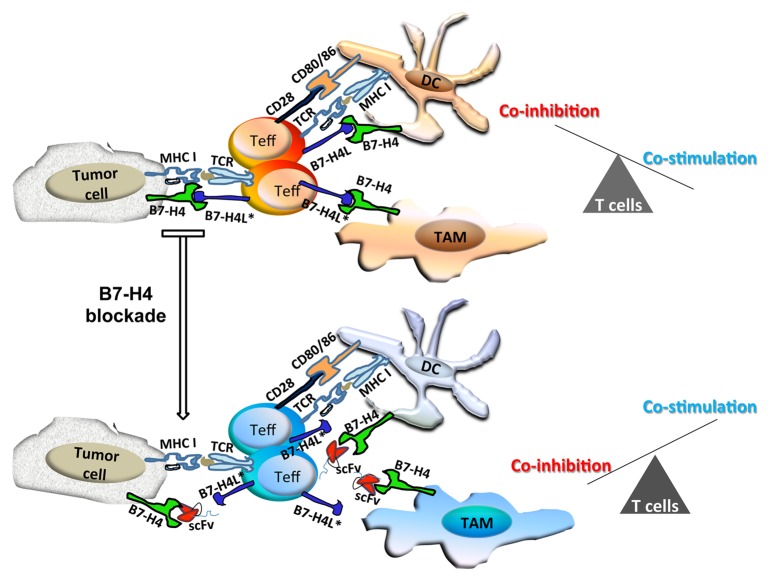Figure 1. Blocking B7-H4 in the tumor microenvironment with specific antibodies potentiates antitumor immune responses. T cells recognize antigens complexed with MHC class I (MHCI) molecules on the surface of antigen-presenting cells (APCs) and some cancer cells, through the T-cell receptor (TCR). The binding of B7-H4 expressed by malignant cells, APCs and tumor-associated macrophages (TAMs) to a putative ligand (B7-H4L*) on the surface of T cells significantly impairs the activation of the latter within the tumor microenvironment. The simultaneous blockade of B7-H4 on various cellular components of the tumor mass, as obtained with specific monoclonal antibodies, can revert T-cell inhibition and hence favor the elicitation of T cell-mediated antitumor responses.

An official website of the United States government
Here's how you know
Official websites use .gov
A
.gov website belongs to an official
government organization in the United States.
Secure .gov websites use HTTPS
A lock (
) or https:// means you've safely
connected to the .gov website. Share sensitive
information only on official, secure websites.
